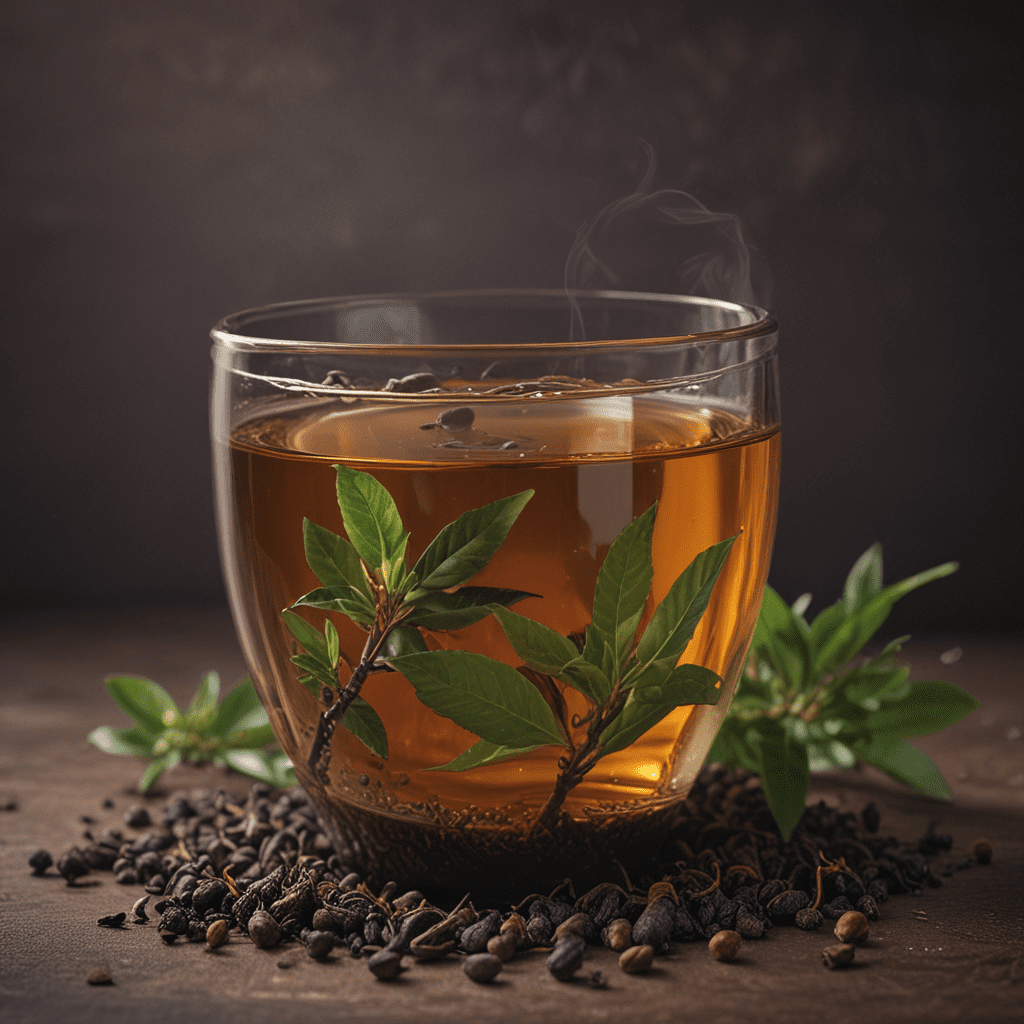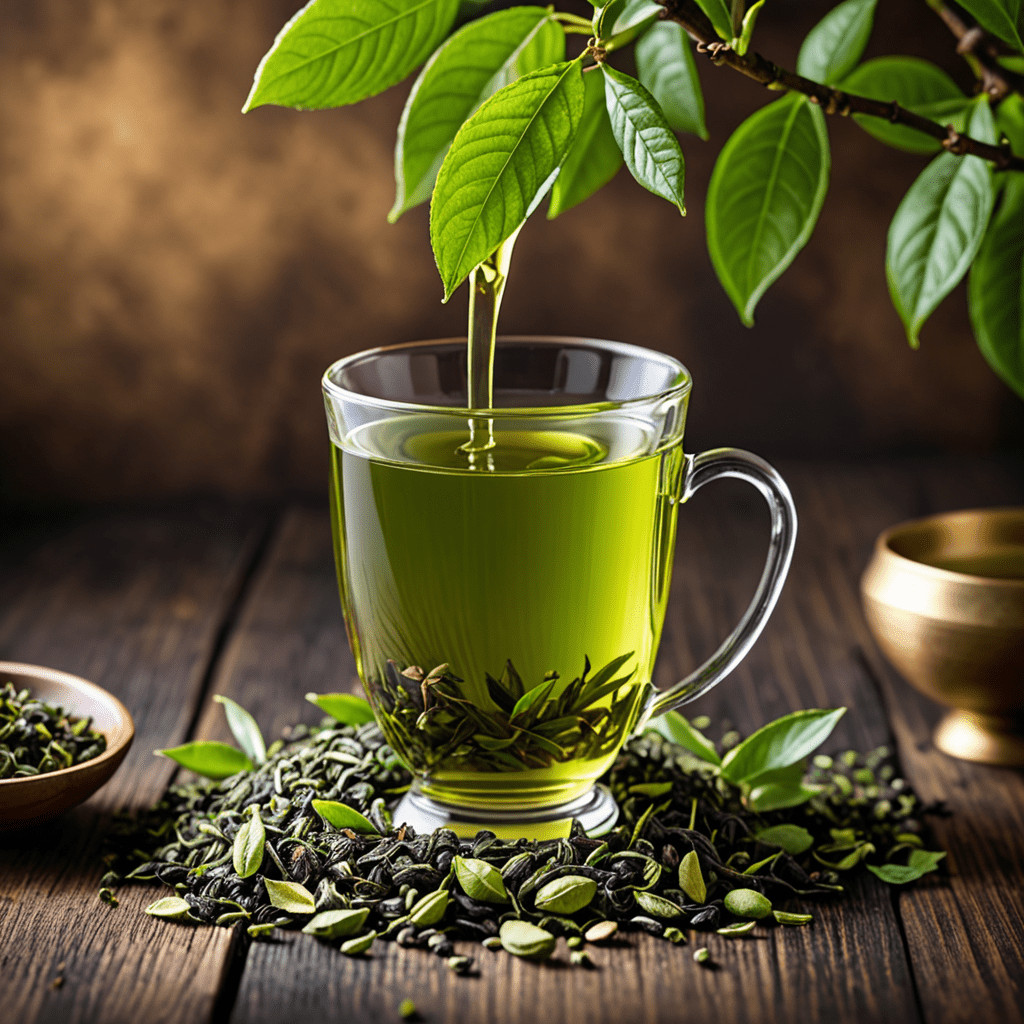Assam Tea: Aromatic Notes and Flavors
1. Introduction
Assam tea, hailing from the verdant landscapes of Northeast India, has captivated tea enthusiasts worldwide with its distinctive aromatic notes and complex flavors. Brewed from the leaves of the Camellia sinensis var. assamica plant, Assam tea has carved a niche for itself as a quintessential representation of Indian tea.
2. Geographical Significance of Assam
Assam, a state nestled in the easternmost region of India, provides the ideal terroir for tea cultivation. The Brahmaputra River, a lifeblood of the region, carves fertile plains and provides ample water, nurturing the tea plants. The subtropical climate, characterized by abundant rainfall and warm temperatures, further contributes to the flourishing tea estates.
3. Unique Characteristics of Assam Tea
Assam tea stands apart with its full-bodied, malty character and earthy undertones. The leaves, larger in size compared to other tea varieties, yield a rich and robust infusion. Additionally, Assam tea is known for its high caffeine content, providing an invigorating start to the day.
4. Malty Notes
The hallmark of Assam tea is its distinctive malty flavor, reminiscent of freshly brewed barley. This characteristic arises from the presence of high levels of theaflavins, complex compounds formed during the oxidation process. The malty notes add a satisfying richness and depth to the brew.
5. Earthy Undertones
Balancing the malty sweetness are earthy undertones, grounding the flavor profile. These notes evoke the fertile soil and humid environment in which the tea plants thrive. The earthy character contributes to the overall complexity and depth of Assam tea.
6. Spicy Hints
Assam tea often exhibits subtle spicy hints, adding a layer of intrigue to the flavor profile. These notes can range from mild pepperiness to a gentle warmth, complementing the malty and earthy undertones. The spiciness is attributed to the presence of volatile compounds, such as gingerols and zingerone, which contribute to the tea's overall complexity.
7. Floral Touches
Amidst the robust notes, Assam tea surprisingly reveals delicate floral touches. Hints of rose, jasmine, and wild honeysuckle can emerge, adding a subtle sweetness and fragrant dimension. These floral notes are more pronounced in teas harvested during certain seasons or from specific regions within Assam, showcasing the diverse flavor nuances of this exceptional tea.
8. Honeyed Sweetness
Balancing the malty and earthy undertones, Assam tea often exhibits a honeyed sweetness. This natural sweetness is derived from the presence of sugars, such as sucrose and fructose, which add a gentle yet noticeable sweetness to the brew. The honeyed notes enhance the overall richness and appeal of Assam tea, making it a delightful experience for tea lovers.
9. Aromatic Complexity
The aromatic complexity of Assam tea is a testament to its unique terroir and careful processing. The interplay of malty, earthy, spicy, floral, and honeyed notes creates a captivating symphony of flavors. Each sip unveils a new dimension, showcasing the remarkable versatility and depth of Assam tea. This aromatic complexity makes it a highly sought-after tea, enjoyed by connoisseurs worldwide.
10. Flavor Variations Based on Season and Region
Assam tea's flavor profile exhibits subtle variations depending on the season and region of harvest. Teas harvested during the first flush, typically in March and April, tend to be more delicate and floral, with lighter malty notes. Second flush teas, harvested from May to July, offer a more robust and full-bodied flavor, with pronounced malty undertones. Different regions within Assam, such as the Brahmaputra Valley and Cachar Hills, also contribute to the unique characteristics and flavor nuances of the tea.
FAQs
What is the caffeine content of Assam tea?
Assam tea is known for its high caffeine content, providing an invigorating boost.
How can I brew the perfect cup of Assam tea?
Use freshly boiled water and steep for 3-5 minutes, depending on desired strength.
What type of milk goes well with Assam tea?
Whole milk or almond milk can complement the robust flavors of Assam tea.
Is Assam tea good for health?
Assam tea contains antioxidants and may have various health benefits, including improved digestion and reduced inflammation.



